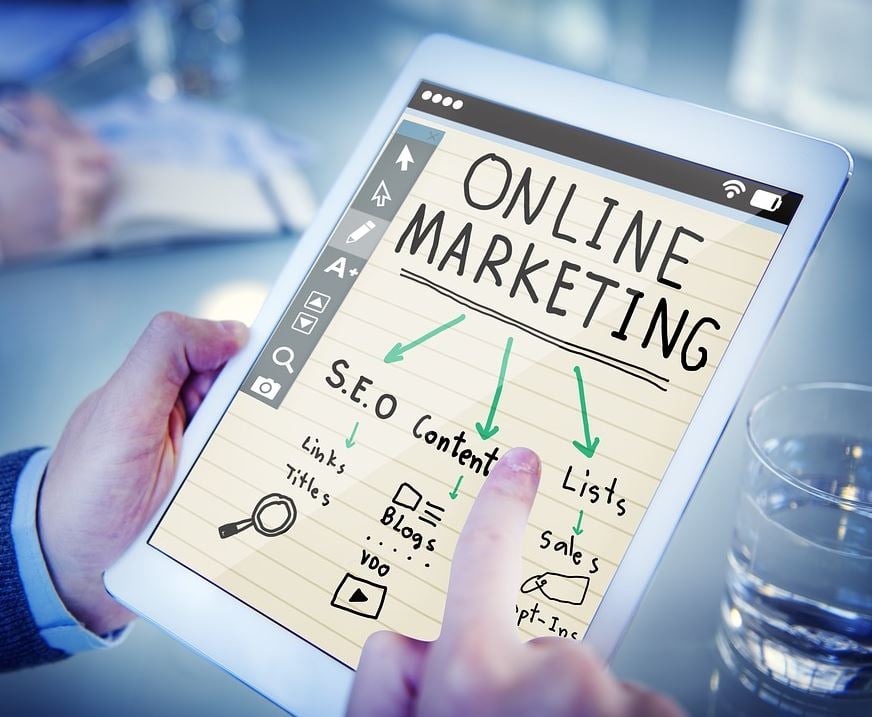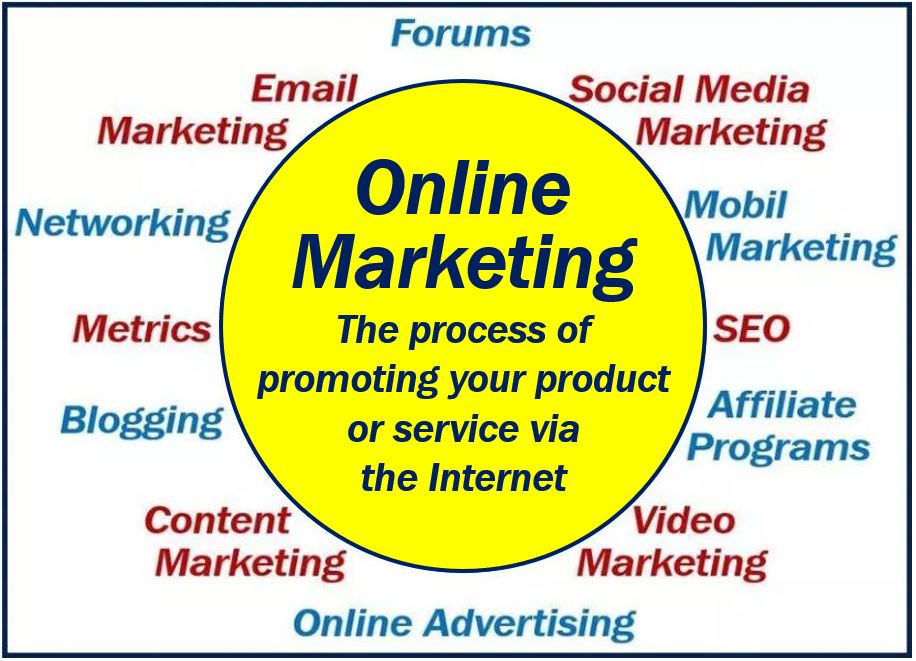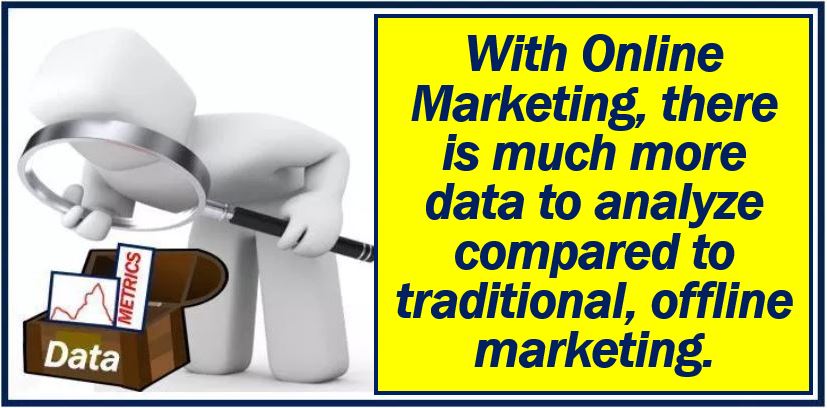What is online marketing? Definition and examples

Online Marketing refers to marketing techniques and strategies that use the Internet to target potential customers. It is a set of methodologies and tools that marketing executives use to promote goods and services through the Internet.
It comprises a significantly wider range of marketing elements than there were before the Internet existed. This is because there are so many marketing mechanisms and extra channels available online.
The term ‘online,’ in this context, means connected to the Internet. It is the opposite of offline.
We also refer to this type of marketing as Internet Marketing, Web Marketing, Search Engine Marketing (SEM), and Digital Marketing.
Reaching out to your target consumers and establishing a brand is one of the most important parts of succeeding in business. In fact, most businesses fail if they don’t have marketing solutions.
Online marketing builds up a business’ reputation
Online marketing, i.e., using a range of Internet tools and solutions, helps enhance a company’s reputation.
Techopedia has the following definition of the term:
“Online marketing is a set of tools and methodologies used for promoting products and services through the internet.”
“It includes a wider range of marketing elements than traditional business marketing due to the extra channels and marketing mechanisms available on the internet.”

Website development
Website development plays an important role in reaching a company’s target audience. Consumers go to websites when they are looking for goods, services, and information.
Regarding what a website provides, USA Today Network says:
“A website provides an online presence that allows customers to find out more about your company, your services and the type of products that you sell.”
“Putting a website together these days is fairly simple, cost effective and absolutely essential to having a business these days. Free website services exist, but come with a number of limitations.”
With the right focus on the target audience a web design company can help you develop a precise web presence to drive conversions, improve customer retention and brand loyalty.
Commercial online channels
Online channels are websites which push (broadcast) requested content to subscribers.
Companies set up online information and marketing services which subscribers can access, often on a monthly subscription basis.
These channels may offer e-mail services, information, shopping, and entertainment to their customers.
Online channels offer marketing executives several advantages over, for example, TV advertising. Businesses can measure the impact of specific channels, how visitors got there, as well as their online behaviors.
According to Optimizely:
“A key benefit of using online channels for marketing a business or product is the ability to measure the impact of any given channel, as well as how visitors acquired through different channels interact with a website or landing page experience.”
“Of the visitors that convert into paying customers, further analysis can be done to determine which channels are most effective at acquiring valuable customers.”

Advantages
Below are some of the main advantages that online marketing offers:
- Geotargeting: you can target consumers according to where they live more effectively.
- It’s Cheap: you can reach lots of consumers and potential customers much more cheaply compared to traditional marketing approaches. Your budget allows you to create appealing and fancy adverts.
- Convenience and Flexibility: customers can gather info about products and services, and also purchase them in the comfort of their own homes.
- Lots of Options: your advertising tools are extensive, including email marketing, pay-per-click advertising, and local search integration.
- Metrics (Analytics): you can gather masses of statistical data without additional costs.
Lack of tangibility
The main drawback is online marketing’s lack of tangibility. In other words, potential customers cannot try out your product. One way to overcome this disadvantage is to give consumers the option of sending goods back and getting a refund.
Emerging technologies like virtual reality are beginning to bridge this gap, allowing customers to experience products in a three-dimensional space before purchasing.
Additionally, the integration of artificial intelligence in online platforms enables personalized marketing, tailoring product recommendations to individual consumer behavior and preferences.
In many parts of the world, especially in the advanced economies, online marketing is outselling traditional marketing.
Online marketing terms and concepts
Here are some terms commonly used by online marketing professionals, their meanings, and an example of how they are used in a sentence:
-
Click-through Rate (CTR)
The ratio of users who click on a specific link to the number of total users who view a page, email, or advertisement.
Example: “Their latest email campaign had an impressive click-through rate.”
-
Conversion Rate
The percentage of users who take a desired action on a website.
Example: “The new call-to-action button significantly increased our conversion rate.”
-
Search Engine Optimization (SEO)
The process of improving website traffic from search engines.
Example: “SEO techniques helped their website appear on the first page of search results.”
-
Affiliate Marketing
A method of earning a commission by promoting others’ products.
Example: “He’s successful in affiliate marketing, promoting gadgets on his tech blog.”
-
Influencer Marketing
Marketing through individuals with a significant online following.
Example: “Their influencer marketing boosted brand visibility.”
-
Content Marketing
The creation and sharing of online material to stimulate interest in products or services.
Example: “Content marketing has become the cornerstone of their online presence.”
-
Retargeting
A technique to show ads to users based on their previous internet actions.
Example: “Retargeting helped them reconnect with visitors who didn’t purchase initially.”
3 Educational Videos
These interesting videos featured on our partner YouTube channel, Marketing Business Network, explain the meanings of ‘Online Marketing,’ ‘Internet Marketing,’ and ‘Digital Marketing,’ utilizing easy-to-understand language and and examples.
-
What is Online Marketing?
-
What is Digital Marketing?
-
What is Internet Marketing?

